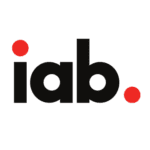How Should I Use a Digital Twin of a Customer?
A DToC represents a virtual replica or simulation of an individual customer, providing valuable insights into their preferences, behaviors, and needs. In this blog, we will explore some compelling real-life examples of DToCs and how they are revolutionizing the way businesses interact with their customers.
How should I use a DToC?
In an era where digital transformation is reshaping industries, the concept of a Digital Twin of a Customer (DToC) has emerged as a powerful tool for businesses to understand and engage with their customers on a deeper level, thus we’re giving many Digital Twin of a Customer (DToC) examples right here in the blog to help explore why DToC is so powerful.
Which is most like your own situation?
Why DToC?
The concept of a Digital Twin of a Customer (DToC) has transformed the way businesses engage with their customers across various industries. By creating virtual replicas that encompass customer preferences, behaviors, and needs, companies can deliver personalized experiences, predictive analytics, and targeted interventions. Whether it is retail, healthcare, finance, automotive, or hospitality, DToCs are revolutionizing customer interactions and driving customer satisfaction, loyalty, and business growth. As technology continues to advance, we can expect further innovations in DToCs, offering even more exciting possibilities for businesses to better understand and serve their customers in the future.
In Retail: Personalized Shopping Experiences
One of the most notable applications of DToCs is in the retail industry. By creating a virtual twin of a customer, retailers can gain a comprehensive understanding of individual preferences, shopping habits, and purchase history. This wealth of data enables retailers to deliver personalized shopping experiences, tailored recommendations, and targeted marketing campaigns. For example, Amazon utilizes DToCs to offer product recommendations based on customers’ past purchases and browsing behavior, enhancing customer satisfaction, and driving sales.
In Healthcare: Predictive Analytics and Preventive Care
The healthcare sector is also harnessing the power of DToCs to improve patient care and outcomes. By analyzing vast amounts of data collected from patients, including medical records, genomic information, lifestyle choices, and treatment history, healthcare providers can create accurate digital replicas of individual patients. These DToCs facilitate predictive analytics, enabling physicians to anticipate health risks, design personalized treatment plans, and offer preventive care interventions. This approach is particularly effective in chronic disease management, where early detection and targeted interventions can make a significant difference.
In Finance: Fraud Detection and Risk Management
Financial institutions are increasingly adopting DToCs to enhance their fraud detection and risk management strategies. By creating virtual replicas of customers, banks can monitor their transaction patterns and behavior in real-time, allowing for early identification of suspicious activities. DToCs enable the application of advanced analytics and machine learning algorithms to detect anomalies and patterns indicative of fraudulent behavior. This proactive approach not only protects customers from potential financial losses but also safeguards the reputation of financial institutions.
In Automotive: Enhanced Safety and Vehicle Personalization
The automotive industry is leveraging DToCs to enhance safety features and provide personalized driving experiences. By creating virtual twins of customers, automobile manufacturers can understand their driving habits, preferences, and even physical characteristics. This knowledge allows for the development of advanced driver assistance systems that adapt to individual needs, improving safety on the road. Moreover, DToCs enable the customization of in-car experiences, such as personalized seat and mirror settings, preferred entertainment options, and climate control preferences, creating a seamless and tailored driving experience.
In Hospitality: Hyper-Personalized Guest Experiences
In the hospitality sector, DToCs enable hotels and resorts to provide hyper-personalized guest experiences. By creating virtual twins of guests, hoteliers can gather data on preferences, past stays, dining choices, and even social media activities. This information empowers hotel staff to anticipate guest needs and preferences, allowing for tailored recommendations and personalized services. From room customization to curated dining experiences and personalized itineraries, DToCs enable hotels to go beyond mere accommodation and deliver unforgettable guest experiences.
We hope these Digital Twin of a Customer (DToC) examples have been helpful in your research, if so, let us know !




